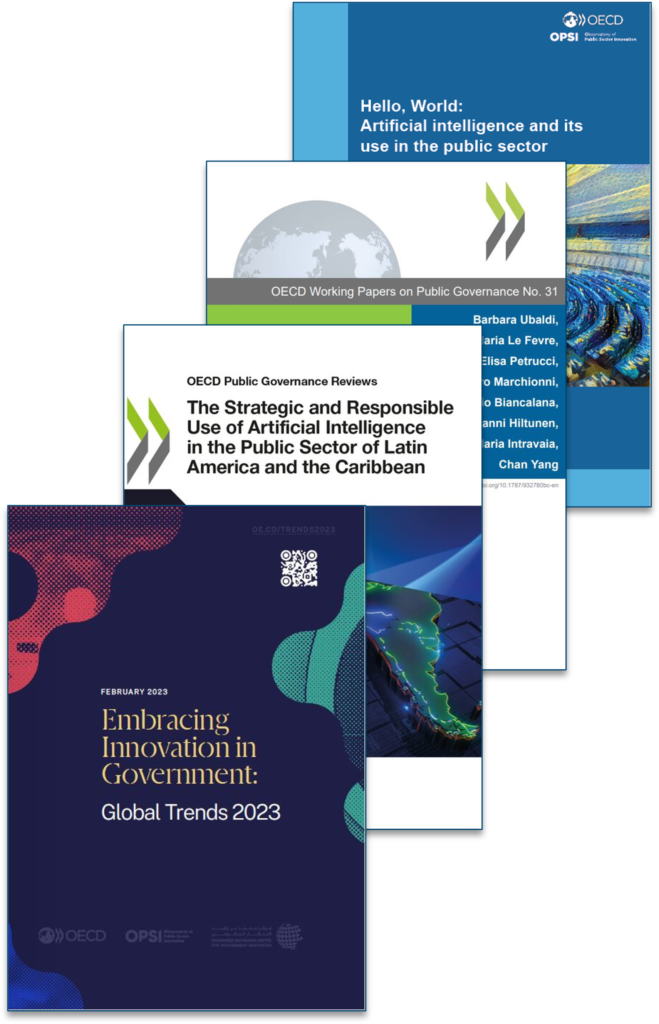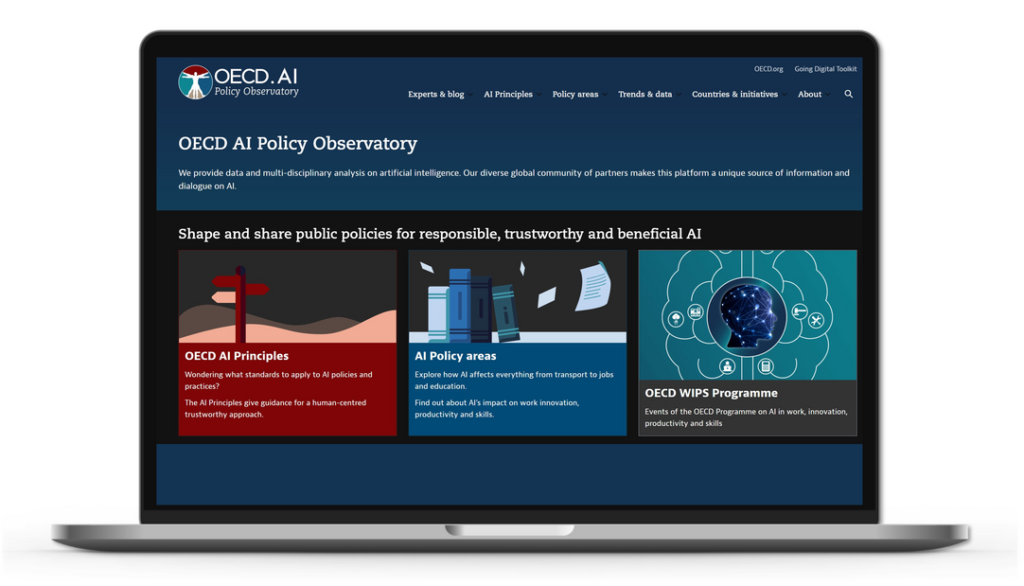Blog
Call for Co-Creation Bootcamp: Improving civic participation…
Written by OPSI | 9 December 2024
This website was created by the OECD Observatory of Public Sector Innovation (OPSI), part of the OECD Public Governance Directorate (GOV).
Validation that this is an official OECD website can be found on the Innovative Government page of the corporate OECD website.

ABOUT AI IN THE PUBLIC SECTOR

AI holds great promise for the public sector, and governments are in a unique position in relation to AI. They are capable of setting national priorities, investments and regulations for AI, and can also use it to redefine the ways in which the public sector creates policies and services. Hype around emerging technologies often overstates or obscures practical applications. An understanding of AI is therefore critical for helping policy makers and civil servants determine whether it can help them achieve their missions.
OPSI and its sister team, the Digital Government and Data Unit, have developed significant expertise in AI in the public sector. The core results of this work can be found in four reports:


Our work feeds into broader OECD efforts on Artificial Intelligence, a strategic and cross-cutting area of focus.
An important milestone was the adoption of the OECD AI Principles in 2019. This pioneering set of intergovernmental standards on AI stresses the importance of ensuring that AI systems embody human-centred values, such as fairness, transparency, explainability and accountability, among others. The OECD.AI Policy Observatory serves as the orgaisational lead in advancing OECD’s AI-related efforts, including the adoption of the OECD AI Principles.